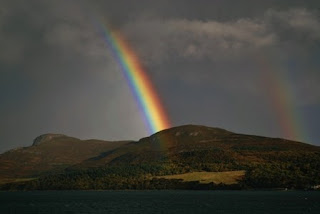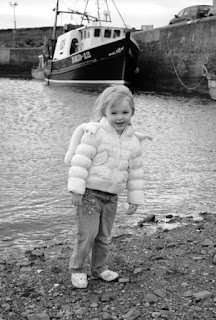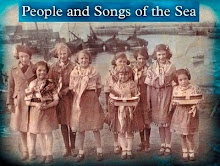 |
| Kinlochbervie, Shona McMillan © |
Can a photo depict a person? To choose but a single image, does that risk conveying only one aspect of a multi-dimensional life?
People identified: consultant, photo-journalist, musician...
NOT a label, each person is a combination of parts eg: business skills from their day job, creative, sporting and artistic pursuits that nourish heart, body and soul. Their outlook on life - shaped by home, family and friends.
Educated in Edinburgh, visiting East Lothian relatives, and after a lifetime of Highland holidays and music travels abroad, all these experiences combine to make up the person I am.
 |
| Durness, Shona McMillan © |
Returning from Sutherland to finish my weekend in Edinburgh, with Irish friends over for the Scots Fiddle Festival - it tugs on the heart strings not to be able to see all those I care for in different places when I want to but that is both the curse and the joy of the modern world. Born in Edinburgh, I have been able to travel, put down roots in more than one place and develop friendships at home and abroad. Friends who, reflect and gel with different parts of my life in the ever moving social and business circles everyone forms over the years.
 |
In Edinburgh, Arthur Seat the extinct volcano,
Described like a lion guarding the city, Shona McMillan © |
Yet, in Edinburgh now, still how powerful the feelings of having been with family. And, when I was alone in Sutherland, it felt like even the land seemed to welcome me home. So many memories, years of growing up in the place, shared lifes and times... With one friend, when we hugged, there was nothing said for the longest time but no words could have communicated more powerfully the depth of our unspoken bond. A continuing friendship, built up over many years, through the love of the generations of our families now gone.
 |
| 13.11.10: Durness to Kinlochbervie, Shona McMillan © |
Finally, when I left the area, the sun had dropped behind the hills and there seemed an incredible hush. The silence felt as powerful as the unspoken words in the embrace of my friend. I drove without music on and my window open but there was no sound of bird song. But, as I drove by a loch, a deer stood there motionless. I stopped, reversed and then got out but still, it did not move as I walked towards it.
 |
| Stag on the Lairg Road, Shona McMillan © |
Coming in from Lairg, along the Kinlochbervie to Durness road, the mountains seem to tower over the land, almost like great, mighty beasts that are positioned to guard the communities below. Out of this photo to the left stands Foinaven, surely my most favourite mountain of all. In Kinlochbervie at sunrise, Foinaven is the first mountain touched by the rays of the sun as it rises over the sea at Durness. Now in the dusk, I felt so close to the old country, the land which endures the passing of the seasons, the years and all things.

Standing there, it felt almost as if the deer had come to bid farewell. For some time we watched each other, until I knew it was time to let go and journey on. I broke the silence with "Goodbye". At that, the stag slowly turned and moved away, it's long legs passing elegantly through bracken and heather without a sound, back towards the loch until it was gone from sight.
I walked back to my car to begin my long drive back, a journey south to friends, music and laughter. Yet in my heart, part of me was and ever remains at home in Sutherland. My reflections on my friends and time spent in the Highlands (and similarly in Ireland) these relationships are so very important to me - wherever I am they are with me, an intrinsic part of who I am, my past, present and future.
 |
| Mountains on the Lairg Road, Shona McMillan © |
A long way from my experience on the Lairg Road, back in Edinburgh studying my photos of the deer, something in its quiet expression reminded me of a poem that I had written nearly twenty years before. A poem begun, not in the quiet beauty of the Highlands or even on one of my many trips to Ireland but started on an evening as I stood at a window in Milan watching the absolute confusion of an evening rush hour. A poem from my desire to climb a mountain away from all the noise, to be at home again in the Highlands, able to look down on the land from Suilven in Assynt or Foinaven at Kinlochbervie.
 |
| Suilven in Assynt, Shona McMillan © |
Staying in a friend's house, having travelled from Naples, this girl with a mix of the Highlands and a love in her heart had actually considered being married in Italy. Now, from the window in Milan, I saw so little greenery. Across the street, some poppies caught in a warm breeze. Above me, swallows that darted and dived. Like wild geese in flight, I knew they would be calling out to each other but their singing was lost in the dusty, fume filled noise of the traffic.
 |
| Portobello: Wild geese over the Firth of Forth, Shona McMillan © |
It was at this moment that I knew so clearly where my home was. I would always love visiting Italy (and indeed, some years on I was seconded to work there and lived in Rome for several months). Yet, on that day in Milan, so far from Scotland and all the Celtic culture that was and is so very important to me, I knew that Italy was not a place where I could choose to live forever, settle and make my home - sooner first, my home was in a "wee fishing village" in Scotland. Previously in Naples, in the seemingly never ending noise, I had asked my partner - "How do you survive all this chaos?" He said he created a quiet place inside his head and carried it with him.
 |
| Fisherrow harbour, as a boat comes in at sunset, Shona McMillan © |
Watching the scene from that window, I saw many visions of Scotland in my mind. From the strength of my Highland reflections, the words of this poem just flowed out of me. Words from the dawning of my own understanding that whether I be in Italy, Edinburgh or indeed, any other place in the world, everything of true importance was already carried within me, held so deeply in my heart.
 |
| From Polin beach Kinlochbervie to Foinaven, Arkle & Stack, Shona McMillan © |
As with the Highland photo which opens this Blog, one I have chosen for my current business card, I very much appreciate the beauty of Sutherland. However, I also KNOW it is not just the beauty of a place but the people and the memories which make it so very special.
 |
Durness, where the community there and at
Kinlochbervie (KLB) so welcomed my family, Shona McMillan © |
My poem reflects how my family and friends contributed to my appreciation of the natural enviornment around me. In addition, how through travel, meeting new people and learning about their life, I could take the oppotunity to develop a greater appreciation of culture, music and the arts. I learnt too, how to turn around something which had not worked, to fully embrace the philosophy that it is better to try to do something (and fail) than to let a fear of failure stop you from trying to achieve it in the first place.
 |
13.11.10: Saying farewell to Durness
The start point of my journey to Edinburgh, Shona McMillan © |
My poem finishes with the title of a book a dear friend in America gave me 21 years ago. Susan Jeffer's: "Feel the fear but do it anyway!" - a lasting quote from the book that I still repeat today is: "Ships in the Harbour are safe but they weren't built for that!"
 |
Myself at Kinlochbervie, Shona McMillan © All Rights Reserved
|
FEEL THE FEAR BUT DO IT ANYWAY
I take my freedom, to soar as a swallow
Or dance as a poppy, which sways with the breeze
Breathing in deep, the soft scent of wildflowers
My spirit enlightened, by wind through the trees
In dew drops that sparkle, I see Nature's magic
Delight in the beauty, of land kissed by the rain
Inspired by rainbows, where others see storm clouds
Wise from the lessons, which caused me such pain
My heart it is strengthened, by every sunset I witness
My hope springs eternal, in each sunrise I see
Solitude my salvation, friendship my pleasure
Strength and conviction, to stay true to me
 |
| Oldshoremore beach at Kinlochbervie, Shona McMillan © |
Call of the wild geese, beckoning to adventure
Wind through a swan’s wing, encouraging my flight
Eternal sea surge, lullaby to life’s worries
Moon and singing blackbird, joy of my night
Music my companion, voice of emotions
Dolphins swimming strong, in my deepest of seas
Starlight that guides, the path of my journey
While moonlight awakens, the dreamer in me
‘Till one day at last, I’ll climb high up on Foinaven
And there cast my eyes, on my life as I may
And see that my strength, came out of life's learning
That ’tho I felt the fear, I did it anyway
Shona McMillan ©
 |
Foinaven and Arkle reflected in the loch at Kinlochbervie
All Photos by Shona McMillan © All Rights Reserved |




















































.JPG)





